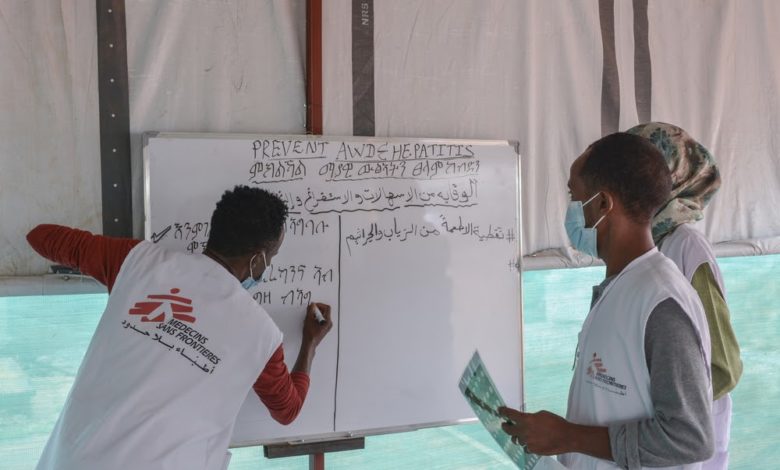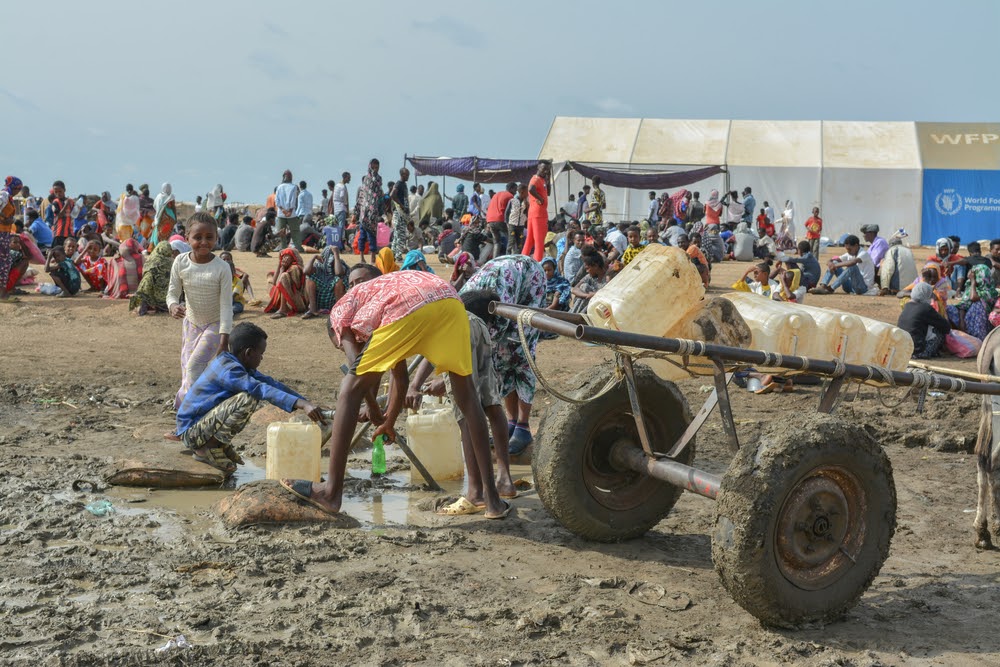Hepatitis E Cases In Tigray Shows Lack Of Humanitarian Response – MSF
Cases of Hepatitis E are spreading across camps in Gedaref and Kassala states, infecting hundreds of refugees from Tigray, Ethiopia.

Medecins Sans Frontieres (MSF)/Doctors Without Borders, an International NGO, says its medical teams in Gedaref’s Umm Rakouba camp and Al Hashaba/Village have received 278 patients suffering from Hepatitis E.
The organisation said 16 of the patients including three pregnant women were hospitalised. Hepatitis E is a contagious virus obtained from drinking contaminated water with faecal matter.
It yellows the eyes and skin, causes fatigue and dark urine, and can lead to acute liver failure and death. It is particularly dangerous for pregnant women, for whom the risk of death is about 25 per cent.
MSF said some of the patients treated by its teams for hepatitis E have arrived unconscious.
“Many patients have acute jaundice syndrome, vomiting and epigastric pain. Umm Rakouba camp is now recording a daily average of 15 cases of hepatitis E,”says François Zamparini, MSF Emergency Coordinator in Gedaref state.
“Six cases have also been identified in Al-Tanideba, while three cases have been identified in Hamdayet. Despite other diseases like typhoid, dysentery and cholera, the hepatitis E virus thrives in environments with poor water and sanitation conditions.”
“Since day one, the humanitarian response has been two steps behind the needs of people here, early warnings about inadequate sanitation, hygiene and shelter were not observed, and latrine and tap stand building has been far too slow. As a result we now have widespread open defecation in the camps. Tigray refugees are paying the price of poor international coordination with their health.”

According to Zamparini, latrines are scarce or unusable in both Al-Tanideba and Umm Rakouba.
“In Umm Rakouba, there are only 175 latrines for 20,000 people, while in Al-Tanideba many latrines have been destroyed by heavy rain and wind. Together the two camps host about 40,000 people,” he said.
“With new latrines under construction, the rainy season will cause a delay of several months. Some latrines are located right next to water points, increasing the risk of contamination.”
“Heavy rainfall flooded many parts of Al-Tanideba, making the situation even more acute. Humanitarian actors should increase the quantity and quality of latrines, particularly as the rainy season is likely to increase the spread of other waterborne diseases.”
MSF health promoters in the waiting area of the MSF clinic in Umm Rakouba wrote out some educational information about hepatitis E.
“The toilets have been a problem since we arrived, they are never cleaned or maintained and we do not feel comfortable using them,” says Mehrut, who lives in Al-Tanideba with her five children.
“Because food distributions have been unsteady, many refugees have also resorted to selling their soap provisions in order to buy food.”
In response to the growing number of cases, MSF has raised chlorine levels in the water, and taken measures to protect and disinfect boreholes under its management from dirty surface water.
The organisation has also increased health education and outreach in the camps. This has included a jerry can cleaning campaign to ensure refugees can store their water. It is also following up with pregnant women, providing them with additional soap as a preventative measure.
“The spread of hepatitis E could have been avoided if the basic infrastructure had been in place on time, instead there has been a collective failure to provide poise and safe services to a number of refugees,” says Sergio Scor, MSF Project Coordinator.
Support Our Journalism
There are millions of ordinary people affected by conflict in Africa whose stories are missing in the mainstream media. HumAngle is determined to tell those challenging and under-reported stories, hoping that the people impacted by these conflicts will find the safety and security they deserve.
To ensure that we continue to provide public service coverage, we have a small favour to ask you. We want you to be part of our journalistic endeavour by contributing a token to us.
Your donation will further promote a robust, free, and independent media.
Donate HereStay Closer To The Stories That Matter




